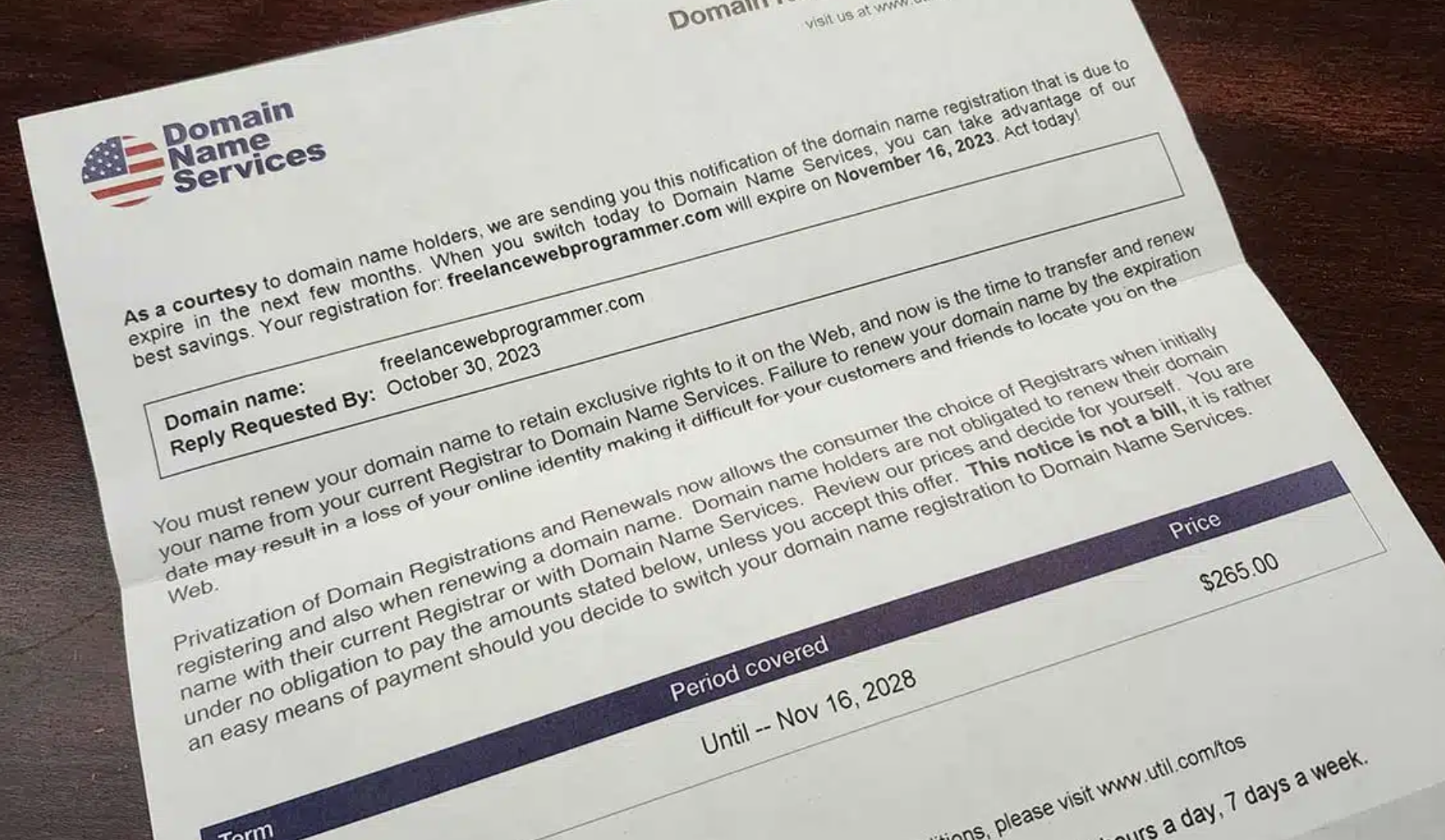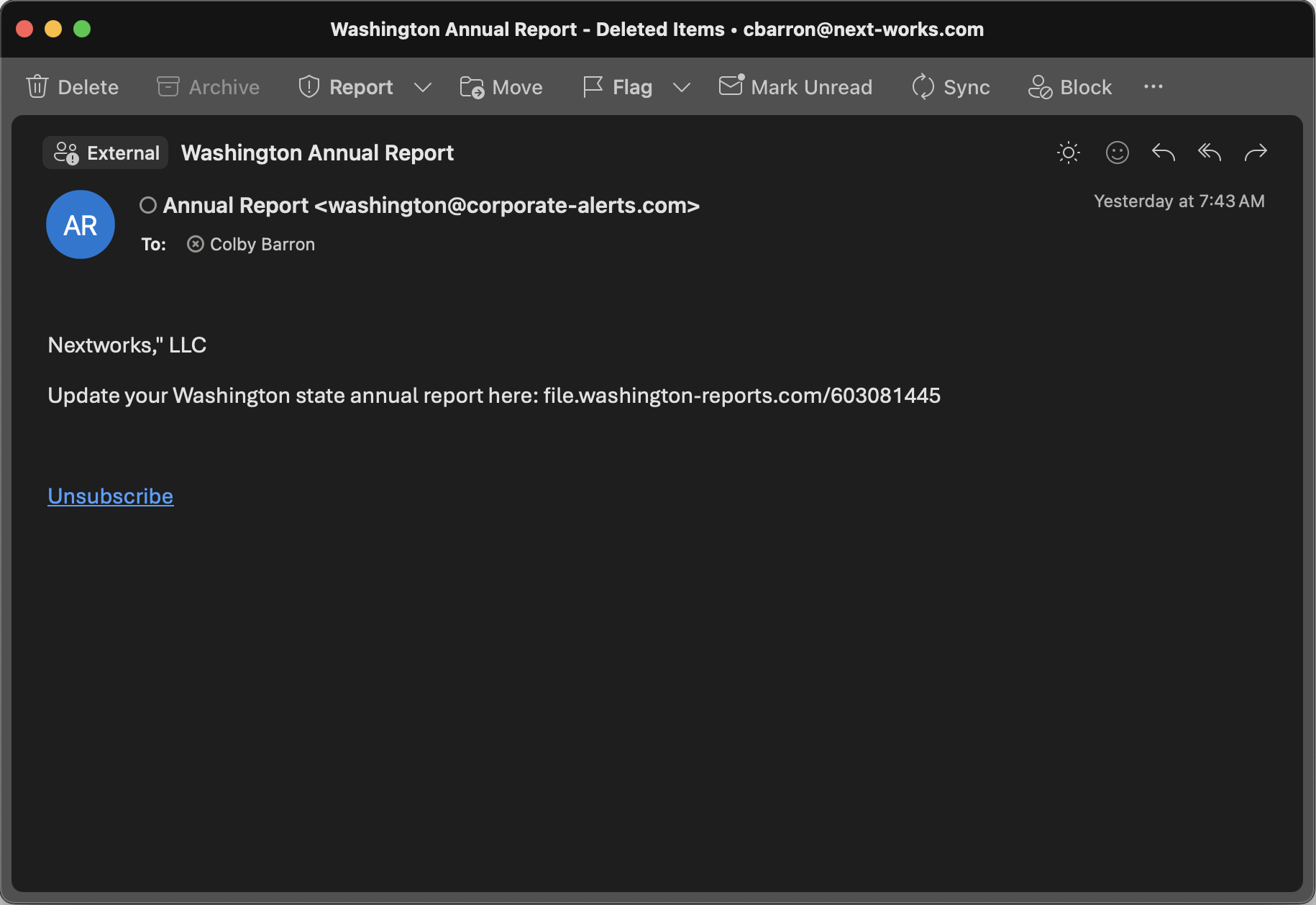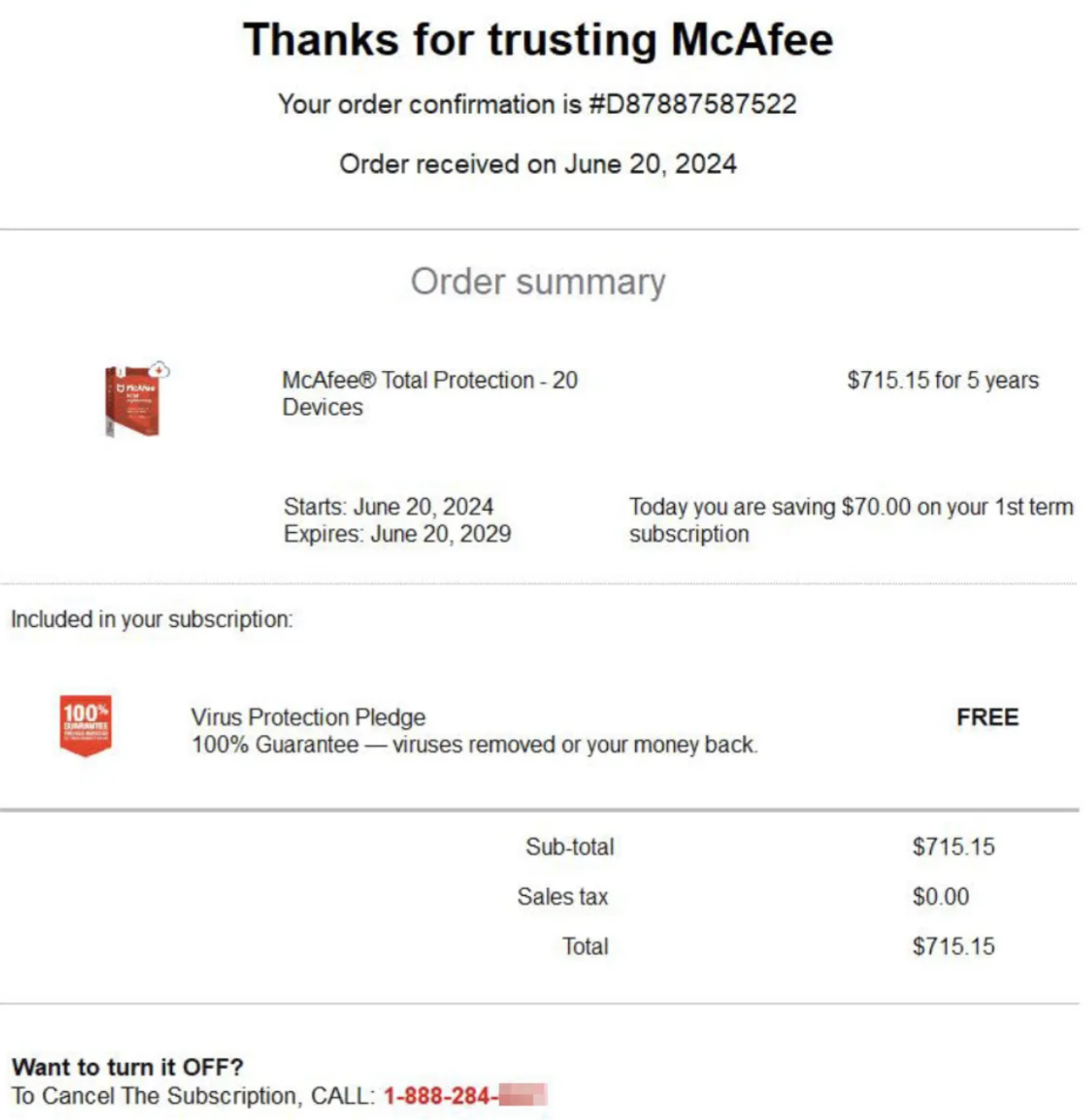


March 2025 | Nextworks

Anyone who manages a business will know all too well the often-overwhelming amount of administrative overhead that comes along for the ride. Here are two popular scams preying on business owners or managers whose defenses are down.
A Domain Renewal scam is a fraudulent scheme where scammers attempt to trick domain name owners into paying for fake domain renewal services. These scams target businesses who have registered a domain name (e.g., yourwebsite.com) and rely on the victim's lack of knowledge about the legitimate domain renewal process.
Here is an example:
RYou receive an invoice from Domain Name Services (see below) for $265 to renew your domain. However, your domain is in fact registered through GoDaddy. But you may not know this.
Depending on the scam, a few things could happen.
Nextworks customers should ignore any domain renewal notices that come in the mail or email. We manage this for you, and you do not need to worry about it.
Following in the footsteps of the enormous successful domain renewal scams, criminals are now branching out.
An annual report filing scam is a fraudulent scheme where scammers target businesses, particularly small companies or LLCs, by tricking them into paying unnecessary or inflated fees for filing their annual report—a document that many businesses are required to submit to their state or government to maintain good standing. These scams exploit confusion around legitimate filing requirements and prey on business owners who may not be familiar with the process.

Fake Notices: Scammers send official-looking letters, emails, texts, or even phone calls claiming that the business's annual report is due soon (or overdue) and must be filed immediately to avoid penalties, dissolution, or loss of legal status.
Impersonation: They often pose as a state agency (e.g., mimicking the Secretary of State's office) or a third-party service authorized to handle filings, using official-sounding names like "Business Compliance Division" or "Annual Report Services."
Inflated Fees: They charge exorbitant amounts—sometimes $100 to $500—when the actual cost to file an annual report through the state is typically much lower.
Urgency Tactics: Messages include dire warnings like "Your business will be dissolved in 7 days" to pressure quick payment without verification.
Phishing or Fraud: Victims may be directed to a fake website to enter payment details or sensitive business info, which can then be stolen, or they might pay for a service that's never completed, leaving the real filing obligation unmet.
Unsolicited Contact: : You didn't request help with your annual report, yet you're being contacted.
Suspicious Sender: The email or letter comes from a generic domain (e.g., "compliance@annualfilings.org") rather than an official state government address (e.g., ending in ".gov").
High Fees: The amount requested far exceeds your state's official filing fee (which you can check on your state's website).
No Personalization: The notice might lack specific details about your business, like its exact filing deadline or registration number.
Payment Oddities: Requests for payment via wire transfer, prepaid cards, or unofficial channels instead of through a state portal.
You maybe also receive a anti-virus renewal notice for anti-virus software you don't even have (example below). Most folks don't know what anti-virus software they use (if any) or how much it costs. Capitalizing on this, a fake email receipt is sent to you. Confused recipients may call the phone number at the bottom of the email. The scammer will convince them that their computer is in danger unless renewed. However, they offer to instead renew the product at a reduced rate. They ask for a credit card so they can cancel the previous charge (which was never actually took place) and re-run the renewal at a discounted rate. You receive no anti-virus software though. This doesn't raise suspicion, as the scammer tells you that you already have the software and now it has been renewed for another year. So, you never report the fraud to your credit card company. Next year, they may reach out again.

We could go on almost endlessly. Other business scams include:
Nextworks introduces cybersecurity countermeasures that are smart long-term strategic investments for your organization.